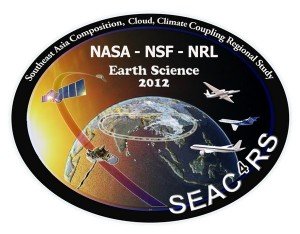U-TAPAO, CHONBURI – To the disappointment of both scientists and analysts, a proposed NASA project to conduct weather-surveying missions from Thailand has been rejected by the Thai government for being too clean and legitimate.
“While we regret having to say no to our American friends, the fact is this doesn’t pass the odious standards set by a century of US-Thai relations,” explained Foreign Minister Surapong Tovichakchaikul.
“According to Thai regulations, all co-operation with US agencies has to be covert, illegal, corrupt, destructive, underhanded, and in direct violation of the spirit or letter of known laws, international conventions, and human decency. This NASA project was just too un-unprincipled.”
According to the government’s full written explanation, the proposed NASA mission to gather climate data was transparent, simple, and would benefit only science and humanity. Co-operation by Thai authorities on a US project of such nature was unprecedented and therefore had to be rejected as a threat to US-Thai relations.
Surapong insisted that politics was not involved in the decision.
“The kingdom of Thailand has always welcomed interference, manipulation, and exploitation from the United States,” he said. “Whether it’s using Thailand for the secret rendition and illegal torture of terror suspects, or the disruption of democratic processes through the funding of military dictatorships, the US is always welcome in Thailand to conduct its dirty, hegemonic black ops.”

In a surprise move, opposition leader Abhisit Vejjajiva agreed with Surapong, adding bilateral support for the decision to maintain the existing standards.
“Let’s not forget that it was the CIA that propped up Field Marshal Sarit (Thanarat) in the 1960s to fight communism,” he said. “And that the CIA actually paid for the distribution of His Majesty the King’s pictures to every house in Thailand to re-create the royalist mythology that survives to this day.”
According to Abhisit, allowing NASA to study “just the weather” would threaten the future of American paramilitary and covert intelligence operations in Thailand.
“It’s a risk we can’t take,” he concluded.
While the US space agency expressed regret at the decision, NASA spokesperson Katie McGraw said that the reasoning was sound and that US-Thai relations were in no way damaged.
“We respect the Royal Thai Government’s decision, and moreover respect their standards,” she said. “We will have another look at the proposal and try to come up with something that does justice to our mutual history.”
Rumors that the NASA project might be amended to include the launching of spy drones or the dangerous underground storage of spent plutonium could not be confirmed at press time.


